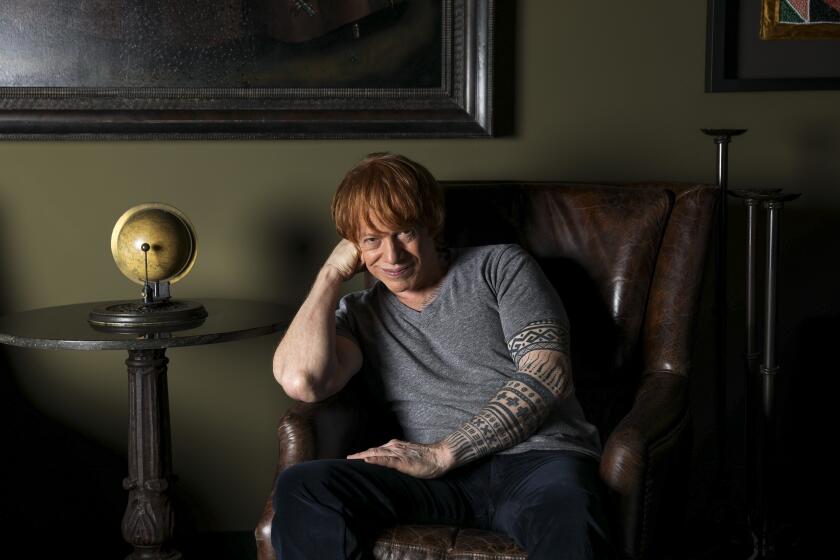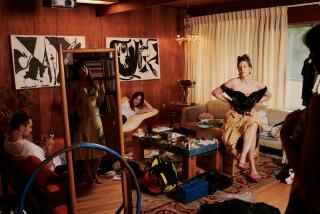Why the ‘White Noise’ production designer got a big surprise when he took the job
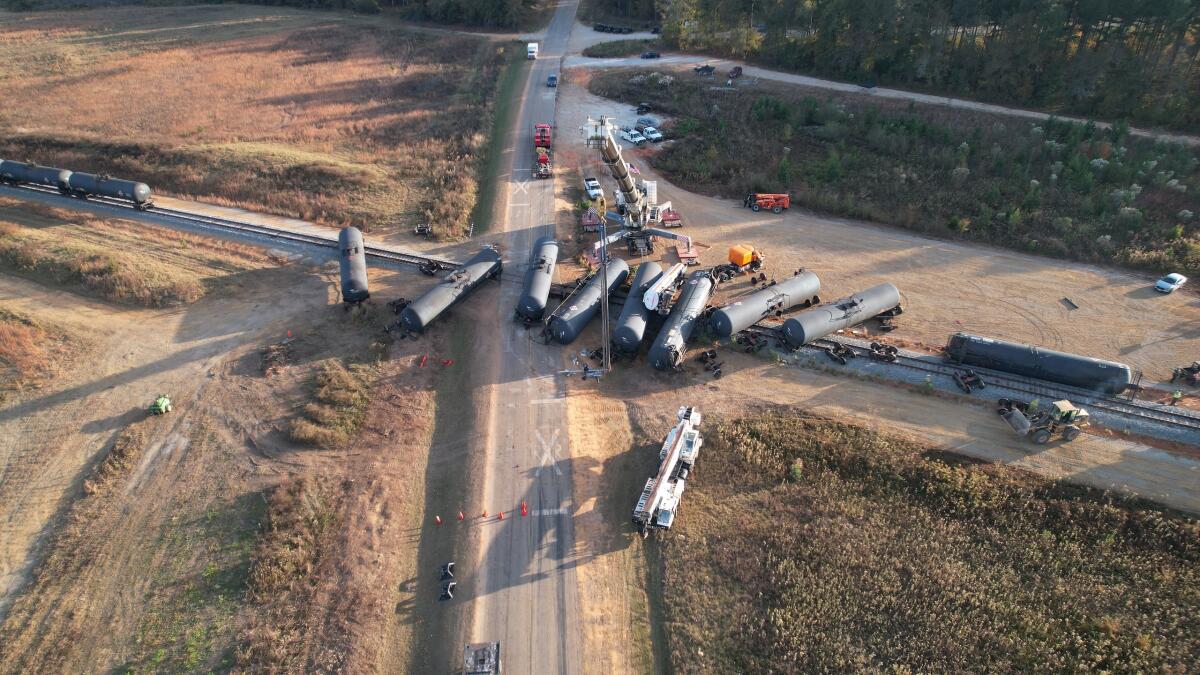
It’s a Noah Baumbach film, so you can bet the emphasis will not be on production design. Normally a chronicler of relationships, as in the 2019 Oscar winner “Marriage Story” and 2005’s “The Squid and the Whale,” Baumbach sets his movies in ordinary environments — at home, the office, the supermarket or a car. For his latest, “White Noise,” based on the National Book Award-winning novel by Don DeLillo, production designer Jess Gonchor expected more of the same. He was wrong.
When a train crash spews a toxic cloud, a professor and his wife (Adam Driver and Greta Gerwig, Baumbach’s partner), are forced to flee their home with their family. “That was probably my biggest undertaking of the movie,” Gonchor recalls. For the location of the crash, he chose a stretch of seldom-used shortline track in rural Georgia. “We had a collision with the truck and train, and I dressed the aftermath with a bunch of cars. I had to find all the train cars, empty them out of any fluids, make them lightweight to crash, put graphics on them, design this intersection where the train could crash. And of course we augment with special effects and visual effects.”

Clearly “White Noise” is not your usual serio-comic character-driven Baumbach movie. There’s nothing odd about a family piling into a boat-like station wagon, but who knew the car would actually be used as a boat? For the scene when a high-speed off-road chase lands the family floating in a river, Gonchor required a trench dug in a stretch of land outside Cleveland, where much of the movie was shot. The river’s bottom was lined with asphalt on which a track was affixed, affording the crew the ability to govern the direction of the vehicle.
Amid the clipped, coolly sophisticated dialogue of “White Noise,” the filmmakers found the tone for a crazy action sequence -- and a dance number
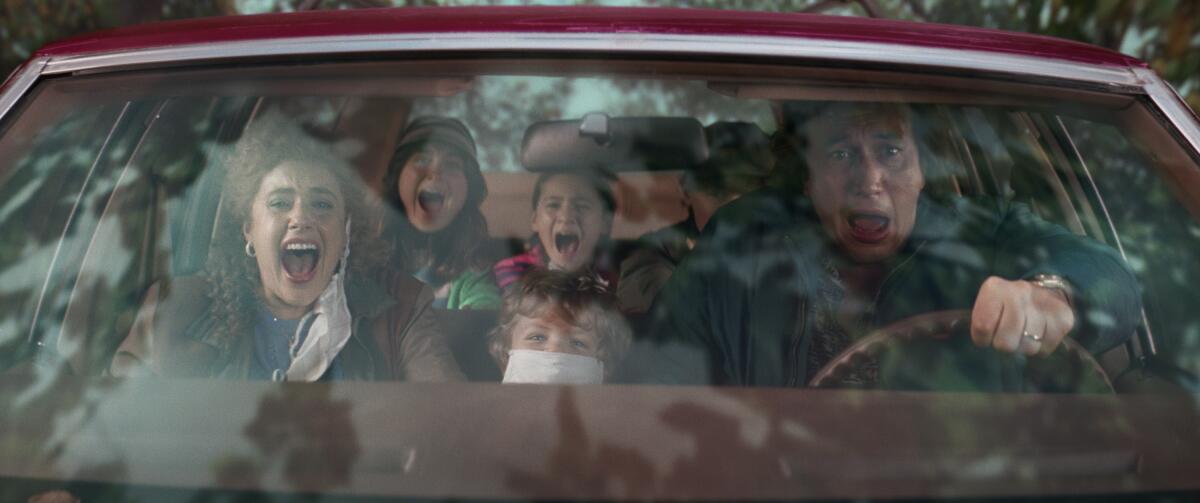
“We had six matching station wagons for the film. At first I was like, ‘What do we need six for?’ And we used all six. Different ones on different camera rigs, lightweight ones that were hollowed out and filled with foam to float, another they would hurl through the air, and another one just rigged to go on the highways,” says the two-time Oscar nominee for his work on “Hail, Caesar!” and “True Grit.”
Gonchor grew up in Brooklyn, N.Y., before moving to Larchmont in Westchester County. He went to Mamaroneck High School, whose alumni include directors David O. Russell and Bennett Miller, with whom Gonchor got his start as a production designer on “Capote” and later “Moneyball” and “Foxcatcher.”
Gonchor and his friends were recruited by his cousin to work on the lighting crew at school. “I fell in love with it and never looked back. There’s never been another job for me. I think I’ve been really fortunate. I still can’t believe I get paid to have this amount of fun.”
“White Noise” was shot only two hours from where Gonchor went to college in the 1980s, the period in which the book and film are set. Being familiar with the region during that era helped him nail down the look Baumbach was going for, particularly with another of the production’s formidable challenges, the supermarket where a massive ensemble dance number takes place.
Director Noah Baumbach knew that Elfman had many sides to him -- the wild rock ‘n’ roller, the gothic musician and the emotional composer. Baumbach wanted them all.
“The supermarket was bigger than the train crash,” Gonchor says. “There were people working six months on printing labels on cans and wrapping current cans with older labels and graphics, and getting our hands on period registers and checkout stands.”
Many businesses were shuttered during the pandemic, making much of what they needed locally available. Yet the biggest challenge remained. Baumbach was not certain the floor of his set was right for his dancers.
“It was a floor that had grout lines in it, like ceramic tiles. And the grout line was so minuscule, but I could tell that it bothered him. It wasn’t that it was bumpy, but it was how it affected the actors,” Gonchor recalls, sharing his sense of dread. “At the last minute, we had to get this buffed white linoleum and put it in in like three days. We brought it in from all over the country. It was a nightmare, but we did it.”
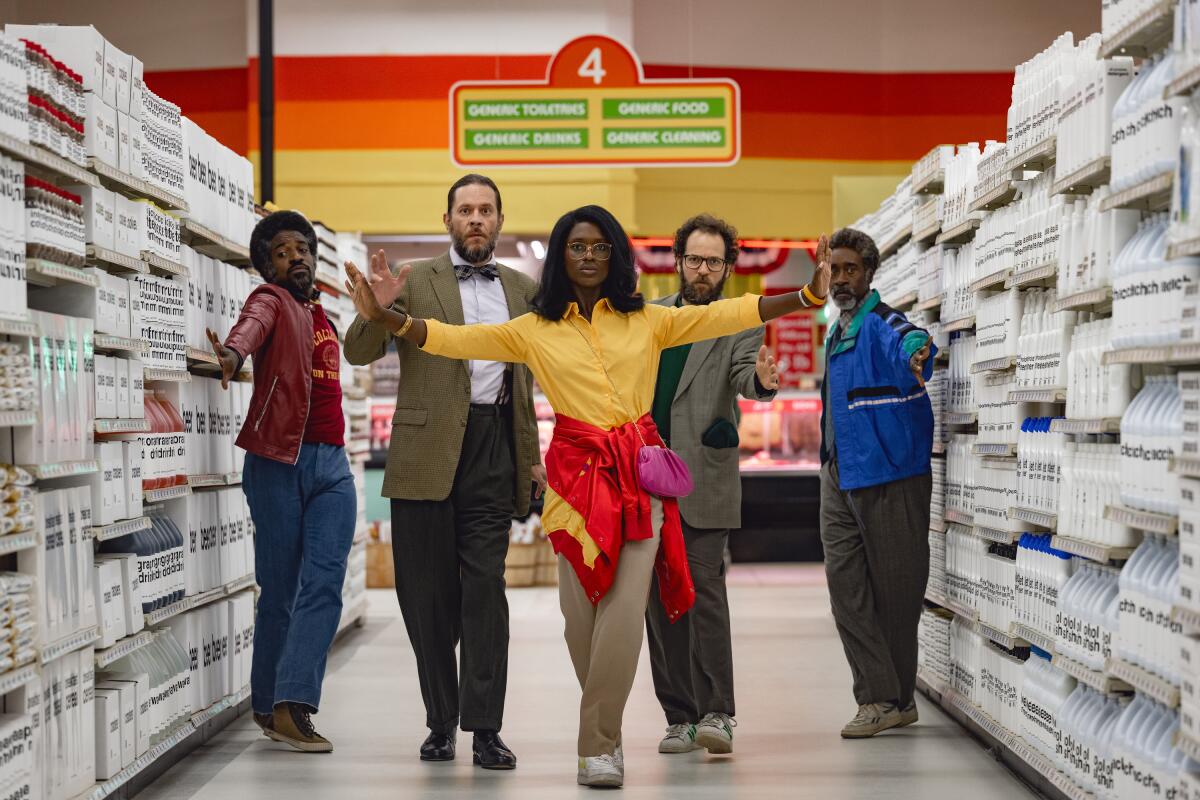
While his next project reteams him with “A Quiet Place” director John Krasinski, Gonchor is branching out into directing TV commercials and second unit. His two Oscar nods are made even more extraordinary by the fact that he’s mainly chosen screenplays that don’t emphasize production design. He lists 19 feature films on his résumé, of which 13 have received Oscar nominations.
“I don’t think it’s why anyone should be doing it, but it’s really nice,” Gonchor says of his experience at the Oscars. “On the other hand, there’s been a couple of things where I’d gotten my hopes up and expected it and it didn’t happen. But anyone would be crazy to say it’s not exciting, because it doesn’t happen that often and the whole ride is fun to go on. So it’s a very enjoyable experience.”
More to Read
From the Oscars to the Emmys.
Get the Envelope newsletter for exclusive awards season coverage, behind-the-scenes stories from the Envelope podcast and columnist Glenn Whipp’s must-read analysis.
You may occasionally receive promotional content from the Los Angeles Times.

